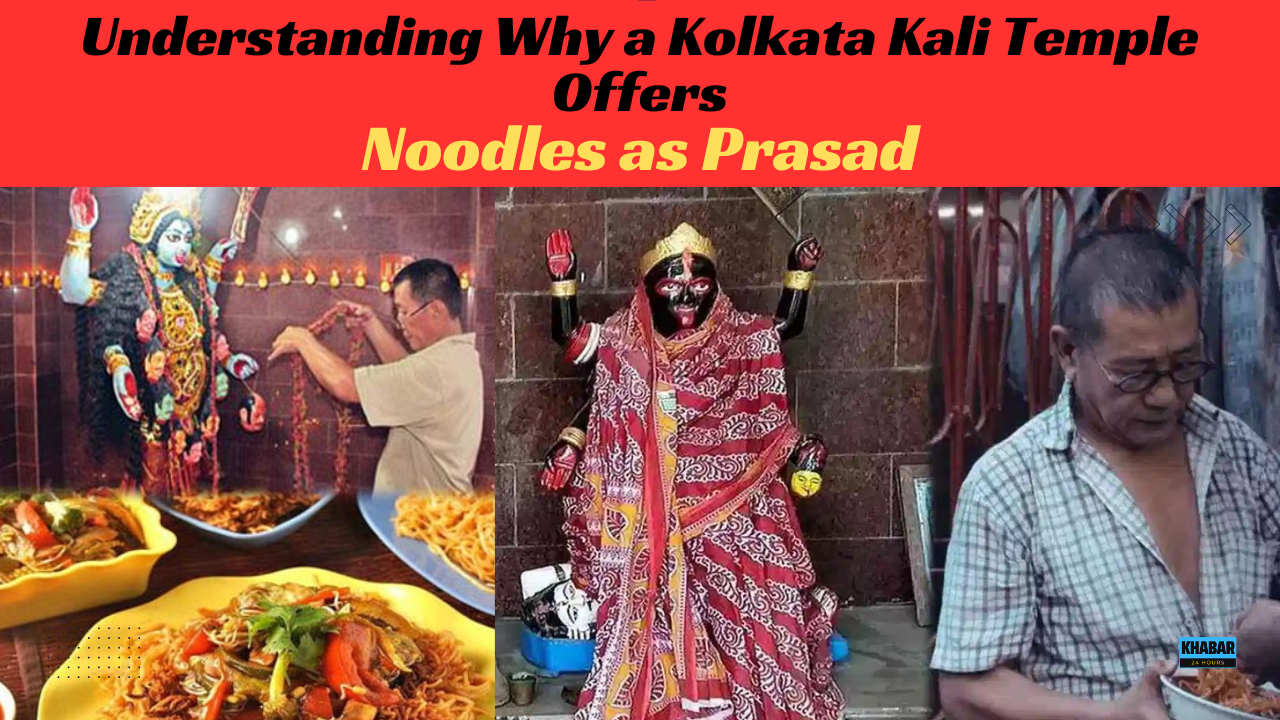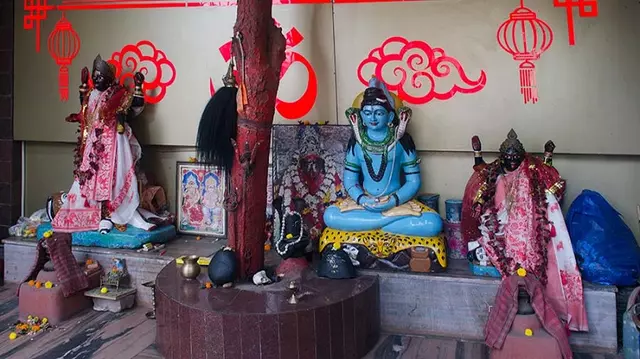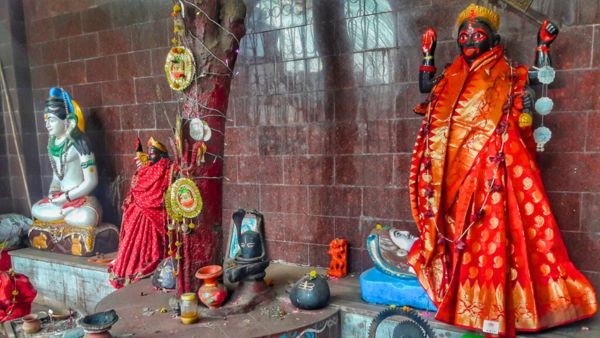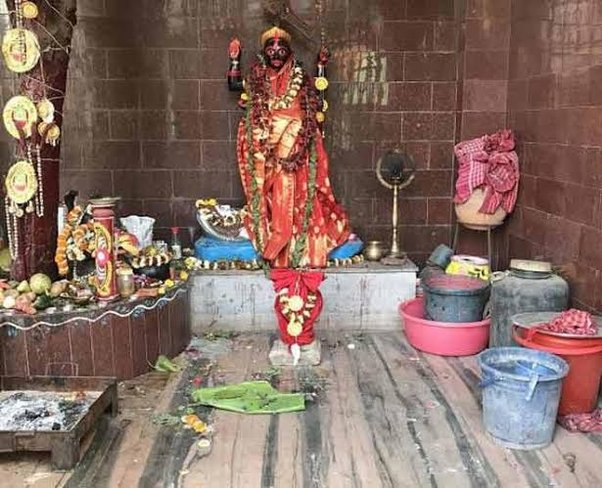Discover the story behind the construction of the temple by the family of a Chinese boy following his miraculous recovery from an illness.

Picture a quaint temple nestled in Kolkata’s vibrant Tangra area, known as India’s Chinatown. But this isn’t your ordinary temple; it’s a unique fusion of cultures—the Chinese Kali temple.
Inside, statues of Goddess Kali and Lord Shiva grace the space, where daily prayers and rituals enliven the atmosphere. What sets this temple apart is the array of food offerings made to the goddess. Alongside traditional items like flowers, noodles and other Chinese delicacies are reverently presented.
According to local lore, there once stood two stones near a towering tree. Every day, people would adorn them with red powder and offer prayers. Then, a remarkable event unfolded: a Chinese boy fell severely ill, defying all medical treatments. Desperate, his parents turned to Goddess Kali at those very stones. Miraculously, the boy’s health began to improve, much to the awe of the community.
Following the miraculous recovery, the boy’s family embarked on constructing a temple at the site. The endeavor demanded substantial dedication, with contributions from members of the Chinese community to realize the project. In the end, the temple stood as a testament to the harmonious integration of two cultures.
Saturdays hold particular importance at the temple, marked by grand ceremonies dedicated to honoring the goddess. During Diwali, the temple illuminates with candles like many others, but it also burns distinctive incense and paper offerings to dispel negative energies.
The manner in which devotees pay reverence to the idol here distinguishes itself from practices observed elsewhere in India. Rather than the customary bowing style, they express their respect for the goddess in their own distinct manner.





